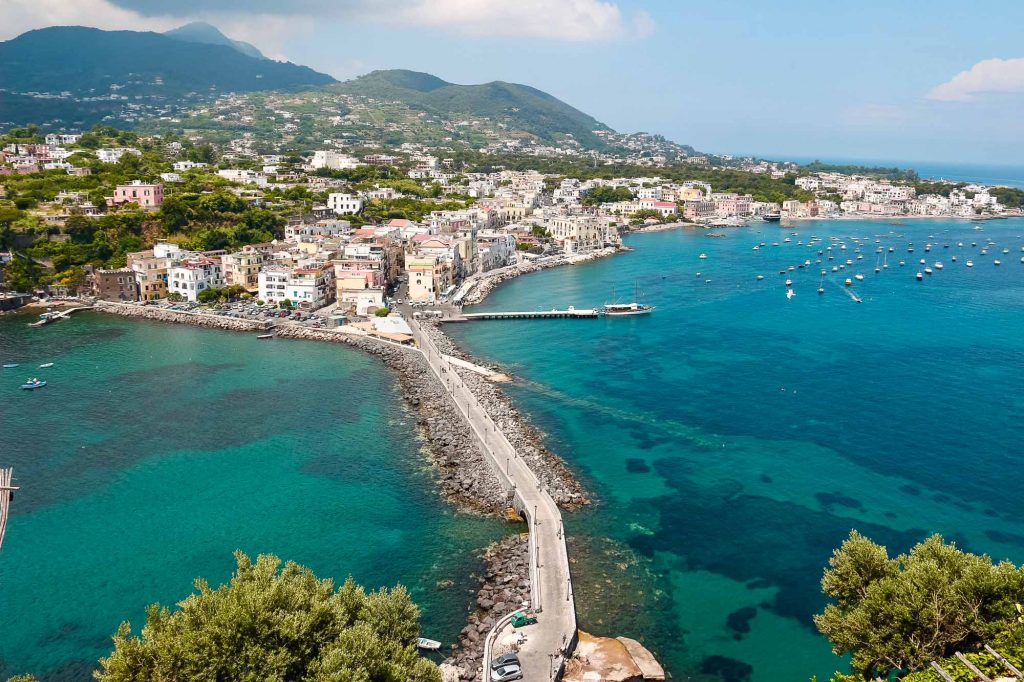8 Italian Habits You’ll Pick Up After Living in Italy
Let’s go beyond the obvious – talking with your hands, kissing cheeks in greeting and, yes, eating lots of pasta. These are some deeper Italian habits, cultural values, and personality traits that I picked up (and learned to love) as an expat in Italy.
I’ve lived in a lot of places in my adult life, and I like to think I’m pretty good at noticing local and cultural differences. In fact, that’s one of my favorite things about travel and about living abroad.
Besides living in Italy for three years, I’ve been an expat teacher in China, a student in Spain, a guide in Nicaragua, a marketer at a desk in France, and a domestic transplant from my native Montana to Chicago, California and Boston.
I haven’t spent as much time in any of those places as I have in Italy.
And of course, being “Italian by marriage,” as I like to think of it, means I probably never will be more integrated into a foreign culture as that of the Bel Paese, or the Beautiful Country, as Italy is known.
But I didn’t start out feeling integrated at all. I began my three years in Milano as a mostly silent observer. I arrived in September, moved in with my then-boyfriend, Emanuele, and realized quickly that observation was about all I could pull off, because I didn’t speak a word of Italian.
So I became a full-time language student. Between studying Italian 5-hours a day, and living the rest of life in full language immersion, I was passably fluent within about six months.
And the rest is history. When I moved back to the US three years later, I felt just as much culture shock coming home as I did leaving.
When you truly get to know a culture well, I think it’s inevitable that you’ll love some aspects of it and maybe start to despise others. (I’d say this rule applies to your own native culture, too, maybe even more profoundly than it applies to any foreign culture.)
Well, today, I wanted to go over a short list of some of the habits and characteristics of Italian culture that I do love.
These are my favorite Italian habits to adopt:
1. Pick up the phone.
Italian culture is very verbal. Take it from me that this can be very frustrating and overwhelming (constant talking, plus a lot of interrupting and talking over people). But it can also be really endearing.
When I first moved in with Emanuele, I was shocked by how many phone calls he got. Seriously, it seemed like three times a day his phone would ring with a third-grade classmate calling to check up on him, or a family member asking how things were going. I kept asking if something was wrong, but no. It’s clear that maintaining relationships is an important Italian cultural value.
What I really love about these Italian phone calls is that they don’t have to be drawn-out, hour-long discussions of every single life update. More often than not, they’re just 10 or 20 minutes – just to remind the person that you’re there, and you care.
So pick up the phone and bug your friends. Text messages are good, but Italy taught me that hearing a person’s voice does so much more to connect you and keep relationships feeling real, not just digital.
(And this applies to work and customer service, too. Business emails often go unanswered, and you often have to pick up the phone to get anything done.)
2. Eat Dessert (Without Guilt).
The way Italians eat is one of my favorite cultural topics of discussion, and this point is just such an easy sell.
Why do Italians eat dessert? For pleasure. They eat dessert because dessert is good, and good is the entire point of eating. Those people who say, “food is just fuel to me”? They don’t exist in Italian culture.
So with that kind of guilt-free freedom to enjoy a dessert, and enjoy just about every other kind of food throughout the day, why don’t more Italians weigh 300 pounds? Well, I’ve written an entire article about that, but here’s the summary: The biggest secrets are reasonable portions, and quality over quantity.

3. Perhaps my favorite Italian tradition: Go on a Vacation.
The vacation schedule might be the most envious aspect of the Italian lifestyle.
Yes, this one is tough to implement with a work culture that’s not willing to work with you. But I do see some gradual change coming on this front, even in the puritanically work-obsessed United States.
In Italy, vacations are fixed into the social and culture calendar just as much as Election Days are in the US. They will happen, whether you want them to or not, and even if you don’t participate, you will hear about them constantly for months leading up to the event. And if you tell people you won’t be participating this year, expect incomprehension and mild disappointment.
And definitely don’t expect life to go on as usual while everyone else is on vacation. August is Italy’s biggest vacation period (and definitely a time to avoid traveling to Italy). Offices close for a week or four, doctors are unavailable, and by mid-July, business deals wither under the phrase, “Ne parliamo a settembre…” “Let’s talk about it in September.”
But August is by no means the only time for a vacation – and that’s what I truly love about Italy.
It’s not considered weird to take a day or few days off. There are 11 bank holidays in Italy, which lines right up with the 11 in the US – except that you don’t have to work in a bank or the federal government to have them off in Italy. No one works those days in Italy.
And with most jobs offering about 4 to 5 weeks of additional paid vacation, it’s extremely common to add a day to any of them, or even clear out an entire week. (“Fare il ponte,” they call it. “Make the bridge,” by connecting a mid-week holiday with a weekend – or even two.)
Related: Check out my list of eco-friendly villas you can rent in Italy and around Europe for a group vacation! (That cost less than you might expect… and they have private pools. Like I said, vacation culture is taken seriously here.)


4. Say what you really think.
I said above that Italians are very verbal. Well, they’re also very straightforward when they talk. Compared with Americans, Italians are much more likely to tell you exactly what they think, without sugar-coating anything.
As I see it, there are two sides to this coin:
- Italians start out negative. So if you’re planning to start a business, move abroad, or make another big life change, be careful going to an Italian to confide your fragile, fledgling dreams, expecting an outpouring of support. Instead, you’ll likely hear some refrain of, “That’s ridiculous! Why would you do that? You have a good thing going with your job/ girlfriend/hometown life. Why mess it up? It’ll never work.” You may eventually wear through that shell of negativity, but you also might not.
- Americans start out sunny and positive. I only realized this so clearly after noticing the Italian tendency toward negativity, a perfect foil the eternal American optimism. You want to quit your job/ end your relationship/ move to another country? “Go for it! Fuck it! You are amazing and your company/partner/country doesn’t deserve you!” But it can be tough to dig through that wall of positivity to get some constructive criticism out of Americans, or to find out what they really think.

5. Be Picky.
“Picky” is not generally considered a good personality trait in the US, but I really don’t mean this as a negative personality trait of Italians.
The easiest example, as is so often the case in Italian culture, comes from food.
Yes, Italians are incredibly picky about their food, so much so that I often feel embarrassed to translate Italian comments for Americans when I’m at a restaurant with mixed company.
Now, I’m sure my in-laws will ridicule me for me this, but some of this pickiness is absolutely because of a certain degree of closed-mindedness toward change, toward non-Italian cuisines, and toward messing with a good thing. (Which is, in many cases, understandable. Don’t play with an Italian recipe. Nine times out of ten, Italians will be more offended than intrigued.)
But it’s also because Italians have legitimately high standards. They demand quality, and more often than not, they recognize the difference.
This knowledge is carefully taught and passed down through generations. Pickiness is a good thing, because it means you’re paying attention, instead of lazily letting quality standards slip. There is no prize for being the most easy-going at an Italian dinner table.
This is also why Italy has so many great restaurants! (And great home cooks.)
And that’s why I appreciate this pickiness; because food is a big part of Italian culture, but it’s also a big part of everyday life everywhere. So why should we settle for mediocrity?

6. Be a little fatalistic.
To be honest, this Italian habit has driven me insane much more than the others on this list. But I also see a subtle silver lining to it.
Whenever I get drawn into a discussion of politics in Italy, I inevitably hear some variation of, “Oh don’t worry, that’s just how it always is…”
I noticed this when I was living in Italy during the 2016 US election. (Spoiler: I wasn’t thrilled with the result, and I didn’t meet any Europeans who told me they were, either.)
In the US, I think people on all points of the political spectrum are much more activistic – or at least antagonistic.
We’ve never met a rule we didn’t think we could change, or a politician we couldn’t argue about. But in Italy, the vibe feels more “why bother changing the rules when we can just ignore them?”
So in some ways, it was a little frightening to me to see how many Italians didn’t seem as outwardly willing to fight injustice, or try to improve failing systems.
(And after years of corruption, mafia influence, and centuries of invasions by Austrian, French, and Germanic groups, it’s actually understandable to want to just put your head down, let politics be politics, and focus on the parts of life you can control (ie: #5).
If you want to dive into this with a great book about Italian history, I highly recommend The Pursuit of Italy, by the historian David Gilmour.)
But eventually I realized this Italian attitude can be a much less stressful way to live.
Italians are right to say that the political pendulum is always swinging one way or another, and it’ll always swing again.
Politics can feel deeply personal, especially when you’re in one of the groups literally seeing their rights taken away. But personally, I learned in college that when I pay too much attention to politics, it raises my stress levels far more than I should allow.
So I think maybe a bit of this “c’est la vie” attitude is a healthier perspective. (I suppose, “così è la vita,” would be more appropriate, as Italians definitely wouldn’t want themselves defined by a French expression.)
So for me, the life lesson from Italy is this: Be active in your community. Pay attention. Vote. But maybe don’t let yourself get too wrapped up in every swing of the political pendulum.

7. Even if it’s not perfect, be proud like an Italian. (But know your shit.)
I love how proud Italians are of their culture, their cuisine, their stunning landscapes and architecture, and their long-lived traditions. And I love how much they know about these things.
Of course, like everything else on this list, that’s a generalization. Not every Italian is extremely knowledgeable about everything I just mentioned, but I’m often impressed by how many Italians can recite recipes, traditions, local history, and folklore from memory.
(And being a generalization doesn’t mean something isn’t based in fact. These traits become quite obvious when you deeply experience a culture that isn’t your own.)
Italians take pride in who they are, and they take pride in knowing about it. I absolutely love that, and it’s pushed me to learn more about the history of my own country and of the cities of I’ve lived in, and to seek out local traditions – even when I’m traveling close to home.

8. Swear freely, and joyously.
Italians swear often, and they swear well. I feel cursing in general is much less taboo in Italian culture – and the connotations are more fun and less angry than the way we often swear in the US.
(One major exception is what are called bestemmie in Italian. They’re any combination of a religious term smashed together with an animal. And they’re big no-no’s.)
And this will likely require another blog post, but I’m convinced that the way Italians swear is also less sexist (despite it being heavy on genitalia).
What do you think? Have you lived in Italy (or are you Italian?) and agree – or totally don’t – with any of these Italian habits? I’m always curious to hear, so leave a comment below.
NEXT: Check out the 8 Things That Make Me Feel Like a Foreigner at Home.








Hi there Ketti, I thought your article (https://www.tiltedmap.com/italian-habits-to-adopt/) was spot on. Any chance I could translate it into Dutch for my website Dolcevia.com https://www.dolcevia.com/nl/ (just on the Dutch version). Obviously you can keep the affliate links and the author will be you.
Thanks for letting me know!
Elisabeth
Dolcevia.com
[email protected]
Hi Elisabeth,
I’m glad to hear you liked the article! Thanks for getting in touch. I’m sending you an email now!
Cheers,
Ketti